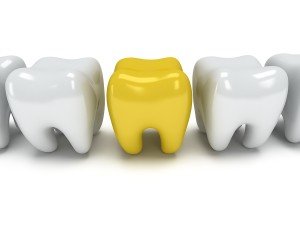How To Know If You Are A Candidate For Dental Bonding
 Composite or dental bonding is a specific procedure wherein a dentist utilizes a durable, tooth-colored resin to improve or restore the appearance of a tooth or multiple teeth. The material is applied to the tooth (teeth) and then hardened with a special blue light known as a curing light. The process is usually recommended when a person’s tooth/teeth have cosmetic and/or structural flaws that are in need of repair.
Composite or dental bonding is a specific procedure wherein a dentist utilizes a durable, tooth-colored resin to improve or restore the appearance of a tooth or multiple teeth. The material is applied to the tooth (teeth) and then hardened with a special blue light known as a curing light. The process is usually recommended when a person’s tooth/teeth have cosmetic and/or structural flaws that are in need of repair.
Benefits Of Dental Bonding
Compared to dental bridges, dental crowns, and porcelain veneers, dental bonding is a more cost-effective cosmetic dental procedure. In fact, it can cost up to 50{3b0f9398becb40f4bdd8fe95c600d2c252c33730296b97da1b334948809cb5c4} less than the other procedures in some cases. Unlike porcelain veneers, which are customized and manufactured in a lab, dental bonding can be performed in a single visit at Community Dental Group.
With crowns and porcelain veneers, more of the tooth’s enamel must be removed in order to accommodate those prosthetics. Conversely, less enamel needs to be removed when a dental bonding procedure is being performed. The composite material used in the bonding process contracts and expands which prevents cracking and the loss of any more of the tooth.
Cosmetic And Restorative Applications
There are a number of applications that cosmetic or dental bonding can be used for including the following issues:
- Altering a tooth’s shape
- Closing gaps and spaces in between teeth
- Filling those spaces where the root is exposed due to gum recession
- Improving a discolored tooth’s overall appearance
- Lengthening a tooth
- Repairing a decayed or decaying tooth
Basically, if you want to enhance a single tooth’s (or multiple teeth’s) appearance because it is discolored or stained, gapped or spaced, misshaped, needs to be lengthened, or is otherwise unattractive, dental bonding is the ideal solution.
Advantages Over Other Cosmetic Dental Procedures
When you compare dental bonding to the other cosmetic dental procedures such as crowns, dental implants, porcelain veneers, and teeth whitening, there are a number of advantages involved. For instance, there is very little advance preparation required with dental bonding and there is typically no use of any anesthesia. The exception to that is when a cavity needs to be filled and dental bonding is used.
If you have been considering having a tooth or teeth bonded, we encourage you to contact Community Dental Group and schedule an evaluation appointment. Once the dentist has performed a thorough examination of your gums and teeth, they will be able to determine whether or not you are a good candidate for the procedure.